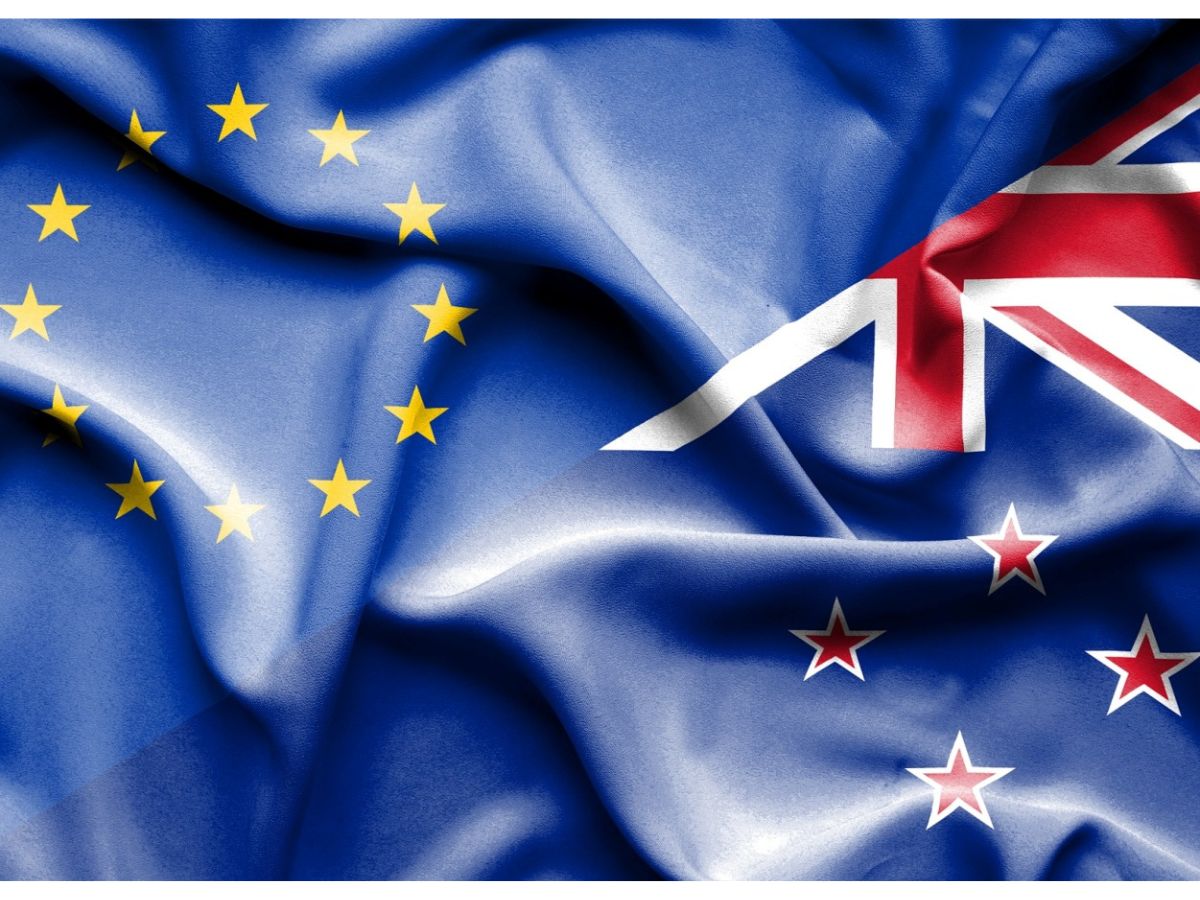New Zealand and the European Union have struck an historic free trade deal, unlocking access to one of the world’s biggest and most lucrative markets after four years of negotiating.
The EU is New Zealand’s fourth-largest trading partner with two-way goods and services trade worth NZ$17.5 billion for the year to December 2021. NZ exporters are set to save approx. $110 million per annum on tariff elimination, with $100 million slashed from day one.
Prime Minister Jacinda Ardern and President of the European Union Ursula von der Leyen unveiled the details of the agreement in Brussels on 30th June. The negotiations were tough, with Ardern and Trade Minister Damien O’Connor involved in the last phase of the talks, just hours before the official announcement was made.
The agreement, which was about 14 years in the making, is a “strategically important and economically beneficial deal that comes at a crucial time in our export led Covid-19 recovery”, covering 27 EU member states, said Ardern.
“It delivers tangible gains for exporters into a restrictive agricultural market. It cuts costs and red tape for exporters and opens up new high value market opportunities and increases our economic resilience through diversifying the markets that we can more freely export into,” she said.
By 2035, the value of New Zealand exports to the EU will increase by $1.8 billion a year, which Ardern said was more lucrative than the benefits gained from New Zealand’s recent deal with the UK.
Eventually, 97% of our current exports to the EU will be duty-free, and more than 91% of tariffs will be removed the day the FTA comes into effect.
There will be immediate tariff elimination for all kiwifruit, wine, onions, apples, mānuka honey and manufactured goods, as well as almost all fish and seafood, and other horticultural products. It will also become easier for a range of service providers to access the EU, including education.
Meat and dairy have always been difficult to sell due to the protected European market, but once fully implemented this deal will deliver new quota opportunities worth over $600 million in annual export earnings. Duty free access for sheep meat has been expanded by 38,000 tonnes each year.
Red meat and dairy will get up to $120m worth of new annual export revenue on day one of the deal, with estimates of more than $600m within seven years.
Quotas have been established for butter, cheese, milk powders and protein whey. Most of the dairy tariffs will be eliminated within seven years.
There’s been a stop on New Zealand cheese exports to the EU for the last five years, but under the FTA there will be immediate access through a tariff-free, annual quota of 31,000 tonnes – worth about $187m each year to the local industry.
Another element of the deal is ‘geographical indications’; names of products that come with a strong connection to a specific area and ones the EU wants protected from use by anyone outside of that region.
For cheese makers, this means New Zealand will be able to keep using the names gouda, mozzarella, haloumi, brie and camembert.
However, the FTA means it’s time to farewell Feta and producers here will have to find another name in nine years’ time.
Cheese makers will be able to keep using the name ‘gruyere’, as long as they’d been doing so five years before the deal comes into effect; the same with ‘parmesan’.
Ardern described the deal as “high quality, inclusive and ambitious”, containing “ground-breaking commitments on environment, labour rights and gender equality as foundational parts of a trade and sustainable development chapter”.
Trade Minister Damien O’Connor says the deal provided “access for products that were previously locked out in the historically difficult to access European market.
“This agreement delivers on what has been a long-standing objective of successive New Zealand governments – an FTA with the European Union, which will help accelerate New Zealand’s economic recovery at a time of global disruption.”
Local cheesemakers are concerned
New Zealand Specialist Cheesemakers Association board member Daniel Shields said that “New Zealand has bowed to EU pressure and given way on key cheese names. Of particular concern is the loss of the cheese name Feta.
“It’s a mixed bag for New Zealand’s specialty cheesemakers. Particularly concerning is that Europe has succeeded in including the right to restrict new names at a future date. This creates uncertainty and makes it hard for New Zealand operators to invest in their businesses with confidence when the threat of a loss of equity in the intellectual property of traditional cheese names looms.”
New Zealand Specialist Cheesemakers Association (NZSCA) chair Catherine McNamara saying local cheesemakers are worried about their future. “The loss of a generic name like Feta gives us grave concerns that other generic traditional cheese names such as Havarti and Haloumi will soon be up for discussion too. It creates an uncertain environment for New Zealand specialist cheesemakers. We are now calling on the government to support industry and to work with us to create a New Zealand naming system that can be protected and invested in.”



